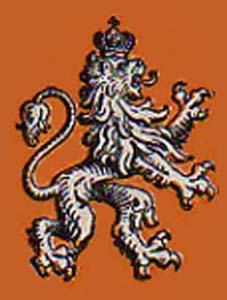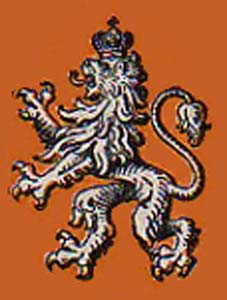| |||
|
Katerina Dimitrova Stephanova |
|
Katerina Alone Katarina and Gregory found themselves stranded in Sofia, on a visit to Bulgaria, when World War I broke out. The privations of war were sufficient to have caused the Tsilkas hardship, but the end of the war brought the dreaded Flu Epidemic of 1918-1919, and among its millions of victims, was Gregory M. Tsilka. Responding to an inquiry in 1924 from the Alumni Association of the Union Theological Seminary, Katerina provided details about her life after Gregory. In 1927, seeking assistance for her children, Katerina wrote a letter to Thomas Jesse Jones, a former Union Theological Seminary classmate of Gregory's, and one of the two witnesses at their marriage, more than a quarter century before. By that time, Jones had become President of the Stokes-Phelps Fund, a charitable organization founded in New York in 1911. Tirana, Albania May 7, 1927 Dr. Jesse Jones, Phelps-Stokes Fund Dear Dr. Jones: Your good letter of Feb. 5th I have received and thank you for your sympathy and kindness. I am not any longer at the hospital -- there were such changes that it was not possible for me to stay. Our best doctor has left! Then the orphanage here, housing some 120 refugee children had no managers and so many persons turned their eyes in my direction. I first went to see the children. Seeing them in filth -- vermin and sores -- I plunged in. For two months I worked and forgot everything and everybody even my own children. This institution is supported by the Albanian Red Cross, but Oh! so poorly! It is the third month I am here and not a cent yet toward my salary -- no money. Skender, my older boy is delicate and needs some rest -my daughter too, next year being her last year, needs to rest this summer. Our countries are not like America, one cannot get a job for only two months -- especially for a girl it is very difficult. They must come to me and I have not the means: This is awful to write to you but the fact that my daughter Ellencke became a victim to our-sensitiveness and spirit of independence, emboldens me - to solicit help just for this summer. Ellencke--over tired from hard studies during the school year-went to work summers in awful offices then when school would begin she was a rag. The result was that she contracted tuberculosis and two years after her graduation she was in the grave. I am so afraid for Aferdita now. She needs rest for she has had awful summer vacations, always away from me. Then clothing, she has worn her school mates'; but the teachers have forbidden such practice. It is a pity for a girl at the end of her College education to sicken from worry and want. So now, Dr. Jones, I turn to you to beg you and through you, Gregory's friends, to give me a helping hand for just this year, and, especially now that I am engaged in the most benevolent work. You understand the situation don't you? Or I better put it this way. Can you get some one interested in the refugee orphans to pay me a salary so that I can help in the education of my children? You have heard of my work through Dr. Erickson. Yes, know it is difficult oven in America to raise funds nowadays! Very glad to read Mr. Groetzinger's letter. So he is a success too. With best wishes, (Signed) Katherine G. Tzilka [Letter, Katerina Tsilka to Thomas Jesse Jones, Phelps-Stokes Fund, 7 May 1927; received from Mona Clark, Phelps Stokes Fund, New York to Richard Cochran, 19 Aug 1976; in poss of Dr. Richard M. Cochran, Big Rapids, Michigan] During a visit to Bansko, Bulgaria in August-September 1975, the author of this website was a guest of Miss Milenka Bizeva, whose mother, Rina Stephanova, was a first cousin of Katerina Tsilka. Milenka recalled that Katerina visited Bansko from time to time, and told the story of her kidnapping on cold winter nights, with her extended family of cousins, arranged around the fireplace, attentive to each detail of the almost fairytale-like story. An unexpected story about Katerina appeared in American newspapers affiliated with the International News Service (INS) for which Katerina's brother, Constantine Stephanove wrote for a number of years. This article was found in the P ort Arthur (Texas) News, 9 Feb 1937, p. 5:WOMAN REGAINS EYESIGHT
Two years later, World War II began and Katarina would live to see it through as well as Albania's transition to a communist state. She died June 22, 1952 in Tirana, Albania, and is buried in the Shish Tufine Cemetery there.On September 25, 1997, at the age of 87, Katerina's youngest son, Stefan Cilka recalled his mother in a letter to the creator of this website. He wrote:
next section (the Tsilka children)
|
| cochranfamily.net |
Richard M. Cochran, Ph.D. |
rcochran@tucker-usa.com Copyright 2009 | All Rights Reserved |

